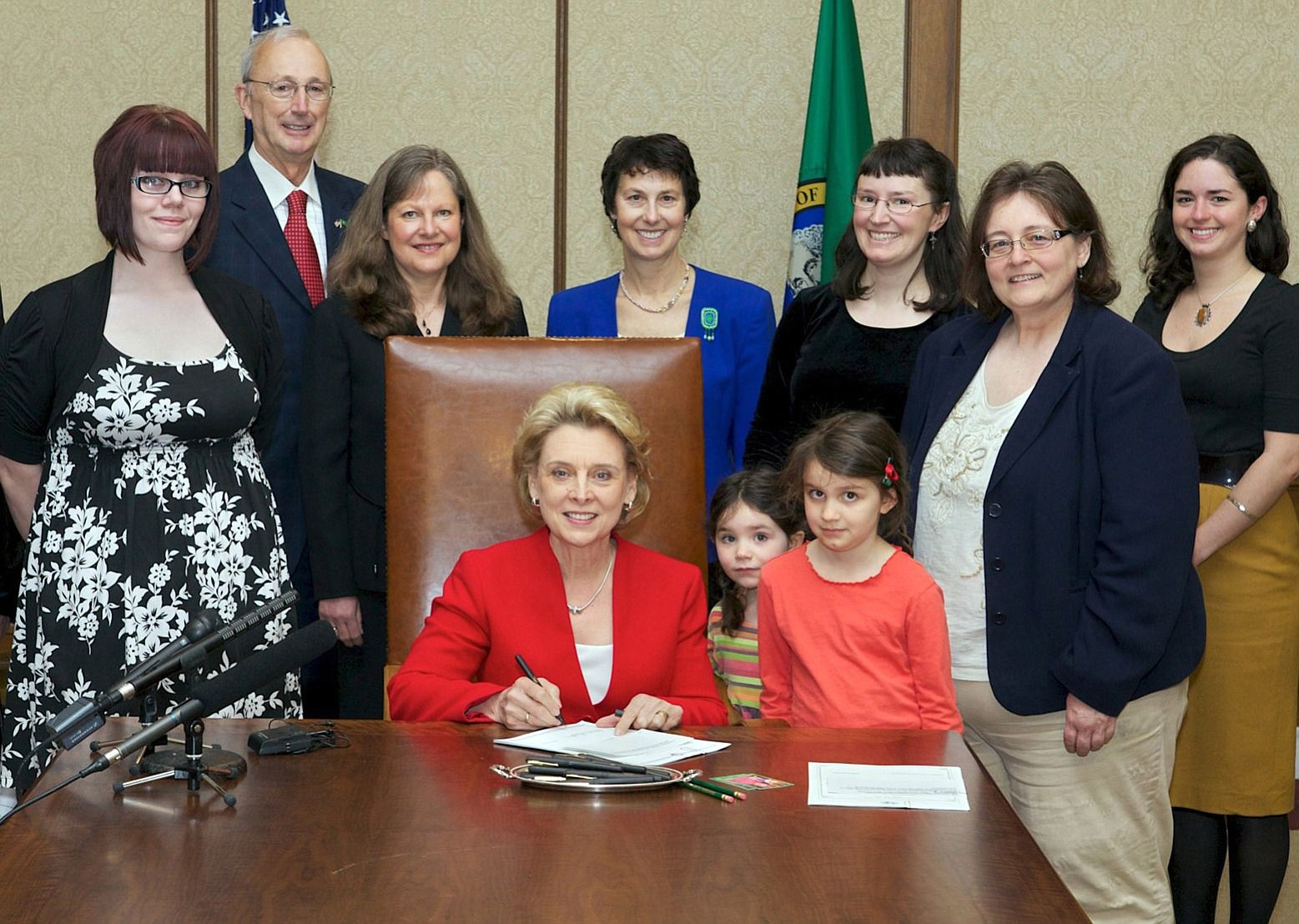When Felicia Hill started shopping for a birthday cake for her son three years ago, she had no idea that she was embarking on a journey that would take her to Olympia and end with a change to state laws. The Hazel Dell stay-at-home mom just wanted to find a safe cake for her son to eat.
As of Friday, the state’s “cottage foods” law officially went into effect, in large part because of her efforts.
It could be several months before the Washington Department of Agriculture formally allows small-scale bakers and other cooks to sell food they make in their homes. Hill said she’s already celebrating the coming changes, which will give families one more way to supplement their household incomes, and will allow Hill to resume selling allergen-free cakes.
Daniel, who’s now five, has a life-threatening peanut allergy. When Hill couldn’t find a bakery that would guarantee a safe birthday cake for him, she took matters into her own hands. She took a cake-decorating class at Michael’s, and began baking peanut-, gluten- and dairy-free cakes on request, for close friends and family.
Her colorful sculpture-like creations were so popular that Hill decided to see if she could bring in a little cash by selling them.
“We want to supplement our income, but for me it’s not so much about making the dollar,” she said. “It’s knowing I can provide a product that’s scarce. You don’t find many allergy friendly places.”
Hill obtained a business license for FH Cakes (http://www.fhcakes.com), researched state law, and soon learned that giving away home-baked cakes is legal, but to sell them she would need to bake in a commercial kitchen.
“My husband and I looked into purchasing a home and building our own commercial kitchen off the home,” she said. “It would have cost me roughly $40,000 to $50,000.”
For a part-time business not likely to bring in more than a few thousand dollars a year, that kind of investment didn’t make financial sense. So she reached out to commercial kitchens in the area and rented space whenever she received an order.
With rent averaging $20 an hour, and elaborate cakes taking five to eight hours to complete, it didn’t take Hill long to realize that she’d never be profitable if she followed the rules. Then she learned that state Sen. Phil Rockefeller, D-Bainbridge Island, whose daughter is an artisan baker, had introduced a bill to allow small-scale bakers to sell goods they made at home.
“The public hearing was four days later,” Hill said. She liked the idea behind the bill, but had a few concerns. It would have only allowed cooks selling $5,000 or less in baked goods to use home kitchens, which would have left out many business owners who were still too small to buy commercial kitchens.
“I went up to Olympia, and based on my testimony, the bill was changed,” Hill said. The bill’s gross sales limit was raised to $15,000.
She put her business on hold and did everything she could to lobby for the change. “I’m on the phone every day. I’m emailing every person I could think of. I contacted senators and House representatives throughout the state,” she said. “It passed through the Senate, and then they had to start the whole process over again in the House.”
The law that ultimately won approval requires home-based cooks to obtain food handler permits and have their kitchens inspected by the Department of Agriculture — which will look at cleanliness, storage, temperature control and other food safety concerns. In addition to ingredient lists and net weight, labels will need to disclose that food was baked in a home kitchen that does not meet the same standards as commercial kitchens. And the state will only allow these home-based businesses to operate if they comply with county zoning laws.
Only baked goods, jams, jellies, preserves and fruit butters can be made in home kitchens.
New passion
Kirk Robinson, assistant director for food safety and consumer services for the Department of Agriculture, told the Capital Press agriculture newspaper that it could take as long as four to six months to fully review and implement the state’s new law.
Until then, Hill has put sales efforts on hold, though she still bakes cakes to donate to nonprofits — allowed under pre-existing laws — “to get that artisticness out,” she said.
And after walking the halls of political power in Olympia, Hill said she’s found a new passion.
“I was never a political person before,” she said. “I learned it’s true that one person can make a difference. I did. I changed the law. I got a personal call from Sen. Rockefeller’s office after this, and they said that with all my hard work and perseverance I should become a lobbyist. I don’t want to move to Olympia, but I’m not done. I’ve got two young boys. To show them what mommy did is pretty awesome.”



